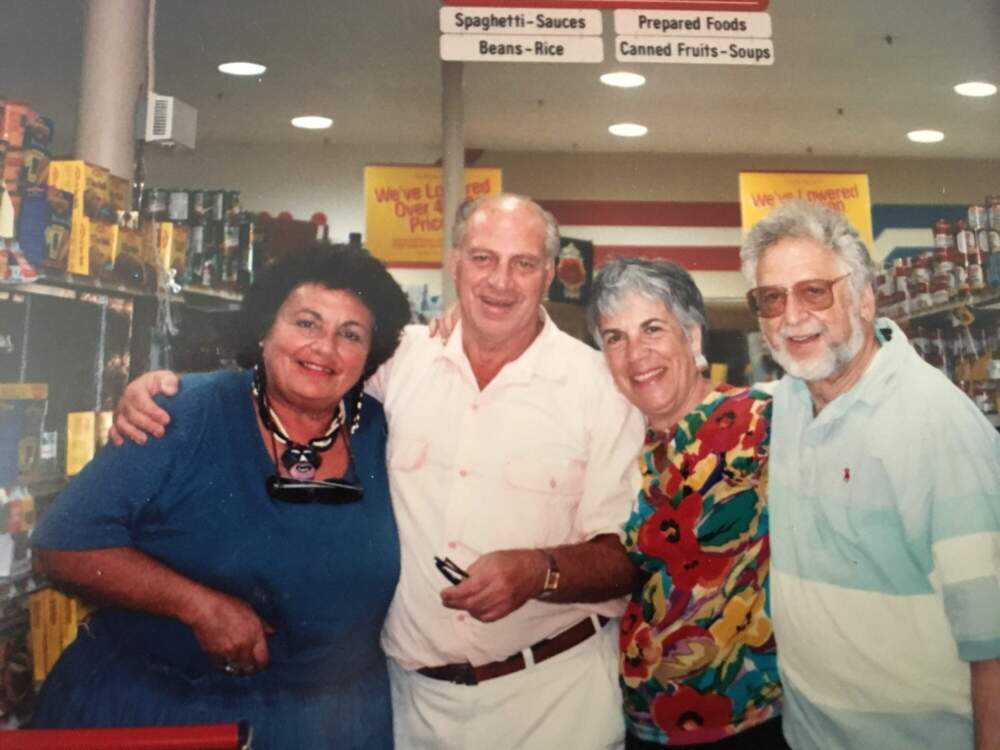Advertisement
Essay
Our 'obligations' to the dead

Last month, the last member of my parents’ sometimes rowdy, always vivacious cohort of lifelong friends died at the age of 96. Nancy was cognitively sharp until the end, but largely immobilized, her hearing and sight rapidly failing her. She was ready — even eager — for death.
Nancy’s late husband Harold and my father had been friends since they were 14. And though my mother and Nancy only met in college, their feminism-before-it-had-a-name, their outlier status as working mothers, their common curiosity, bound them quickly and durably. The two couples traveled together, worried together and celebrated together. They showed up for each other.
One of Nancy’s kids is a good friend of mine, and was tremendously kind to my own mother in her final years. For those reasons alone I would have gone to Montreal for Nancy’s funeral. But even were that not the case, my brother and I would have made the trip because it’s what our parents would have wanted us to do.

Since Nancy’s funeral, I’ve been thinking about my obligation to my dead parents. Actually, with its implication that an action is undertaken grudgingly, “obligation” is the wrong word. It’s more accurate to say that I’ve been thinking about why and how I choose to honor their wishes, despite the fact that they are no longer around to express them.
My parents aren’t alive to rebuke me, let alone ask me to be a dutiful girl. I don’t believe they are dwelling in heaven, observing me from the afterlife.
No, I actively choose to honor what I know would be their wishes because it affords me their companionship. When I act on values that they modeled and taught, I feel them with me.
When I act on values that they modeled and taught, I feel them with me.
And I don’t just experience this pleasure when acting on their beliefs. It’s also when I emulate the quotidian passions that defined them. Whenever I make a peanut butter and banana sandwich — my father’s favorite, not so much mine — I’m infused with his tireless delight in the concoction. When I buy too much produce because God forbid we should run out of tomatoes, I feel my mother’s satisfaction more than my husband’s disapproval. My dad sits invisibly at airport gates, joining me to fabricate stories about other passengers. When a baby babbles or a woman with outrageously spectacular fingernails steps onto the elevator, my mother’s jolt of delight courses through me.
I, like so many people who have lost loved ones, notice their presence not because I’m still grieving their deaths, but because I’m still grateful for their lives.
Of course there are limits. I continue to defy the same wishes after their deaths, just as I ignored them while they were alive. Though I certainly identify as Jewish and engage in a little religious ritual, I never have (and likely never will) observe Shabbat every week as I know my father would have wanted. And while I inadvertently see myself in a mirror a couple of times a day — even once or twice deliberately — I am not nearly as attentive to my appearance as my mother always was and encouraged me to be. Nope, I’m a self-made atheistic slob, and I’m sticking with it.
Advertisement
I don’t have to debate with the dead. I’m happy just to converse with them.
But here’s the thing: I can think and write these thoughts and know that if they were alive to read them, they’d smile. I don’t have to debate with the dead. I’m happy just to converse with them.
Connecting with the dead doesn’t require Ouija boards or mediums. It need not be motivated by morbid melancholy. As I’ve happily discovered, it can be a form of companionship, an act of gratitude, a private tribute that enriches the giver.
I have no idea of what actions my children will take in the future based on what I would have wanted or believed in. They certainly won’t start doing the things they tease me for in life, such as melting mozzarella over tabouli on toast, taking my bra off in the living room and draping it over a chair overnight, or asking too many personal questions (though for the record, I do not!). But when I see them trying to be kind (and generally succeeding), swimming with power and grace, sometimes holding their tongues even when they shouldn’t — perhaps I’m seeing myself as well as them.
Regardless, I’ll cherish them for who they are. It’s what my parents did. It’s what they would have wanted me to do.
Follow Cog on Facebook and Instagram. And sign up for our newsletter, sent on Sundays. We share stories that remind you we're all part of something bigger.
